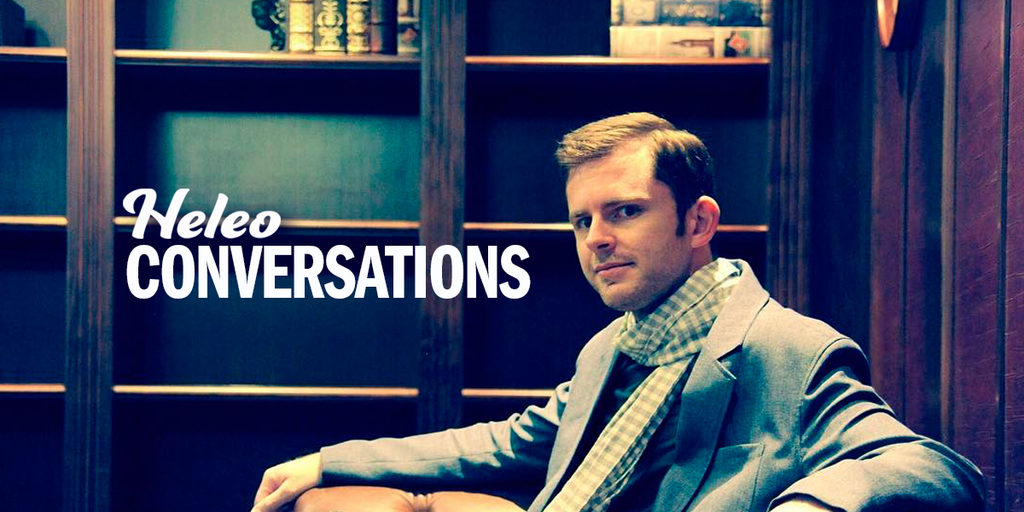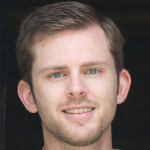Heleo’s Head of Video, Michael Kovnat recently sat down with bestselling author Chris Guillebeau to talk about his new book Born For This. They spoke about incorporating your passions into your work in an economy that no longer centers around life-long careers. This interview has been lightly edited for clarity.
Michael Kovnat: There are a lot of career manuals out there, and there have been for decades. Is there a new perspective that you bringing to the table?
Chris Guillebeau: Most career manuals, most skills-based training, always focus on profession, or on vocation. But I’ve been doing events all across the country, and what I saw is that it’s not just what kind of work we want to do, or what kind of work we’re good at, but how we do that work. In [Born For This] I focused a lot on working conditions, and creating the kind of environment in which you thrive.
It’s just as important to understand how you like to spend your time, what your ideal schedule is, how you’re motivated, how you like to be rewarded and compensated, how collaborative you are. Very different for different people. Helping people understand, okay, here’s the kind of work that I’m really good at, that I enjoy doing [and] here’s the ideal working environment under which I’ll do my best work. Then helping people to marry those two things.
There’s this message of winners never quit. What I saw through the research, and from talking with lots of different people, is that winners actually quit all the time.
Michael: Especially given that a lot of these books were written in a time when work was different than it is today, and professions were more solid than they are now. These things are being redefined around us, and so maybe focusing on things other than exactly what profession you think you’re ideal for is a better approach. Would you agree with that?
Chris: Historically, the classical entrepreneurial advice is that persistence is the most important predictor of success. We always hear these stories of people who fail twenty times, only to succeed on the twenty-first try. There’s this message of winners never quit. What I saw through the research, and from talking with lots of different people, is that winners actually quit all the time. Winners aren’t afraid to give up on something. Winners aren’t afraid to go down a different path and say, “Okay, that’s not right. I’m going to go back to that choice I made. I’m going to create a new path. I’m not afraid to try, try again, but I’m going to try in a different way.”
Trending: How to Transform Daily Habits into Life-Changing Rituals
As for preparing people for that world, the concept I use is one of a self-employed employee. Even if you are working in a company or an organization, you recognize that, essentially, I’m leasing my talents out to this company. It doesn’t mean I’m not going to do a good job for them. I’m going to do a great job. But I’m also going to realize that no one cares more about my career and my future than I do. I’m going to contribute to that company or organization, but I’m also going to invest in myself, and I’m going to build skills that are going to help me, whether it’s in the next job, in some side business that I start, or in some other venture. I’m always going to be thinking about my own security, and my own confidence in my future.
Michael: So how would you describe your job? You don’t have a conventional profession.
Chris: No, I was never a good employee. I was always very motivated to do things for myself. If I believed in something, I would give 110%, and if I didn’t, I would give 10%. I had to find a way to do those things that I really cared about. There’s this old definition of: what is an entrepreneur? An entrepreneur is someone who will work twenty-four hours a day for themselves to avoid working one hour a day for someone else. That model doesn’t work for everyone, but for better or worse, that’s what I’ve done. I was an aid worker for four years in West Africa. I’ve been a writer, a community builder, run a series of small businesses. It was very much a freedom, an independence lifestyle-minded approach.
I get emails every day from people who have started a side hustle.
Michael: How much of this book comes out of your own experiences, and how much is based on conversations with other people?
Chris: The majority of the lessons, or whatever I’m trying to teach people, is not just my story. And it’s not just one other person’s story, because I think the problem with books like that is people read them and say, “Oh, that’s great for that guy. That’s great for that woman. But I can’t really relate to that myself.” I want to make sure that I’m looking at a wide array of different people and diverse perspectives, and truly trying to extrapolate, okay, what really is applicable? What is actionable? What will work for the average person who’s reading this book?
Michael: Can you talk a little bit about the gig economy, and how people might factor that into their career planning.
Chris:I believe that everyone should have more than one source of income. The gig economy, the side hustle approach, is the way to do that. You can think entrepreneurially without being an entrepreneur, you can take ownership of your career.
I get emails every day from people who have started a side hustle. Many have never actually had any kind of business before. Then they set something up, something very simple, a website. They have that Paypal button. Then they sign their first client, or they sell something on Etsy, whatever it is. They get that notification, “Someone has sent you money.” It’s very empowering, the very first time that you experience that. Maybe it’s a small amount of money, but it produces disproportionate satisfaction. It gives people confidence, and it opens up more doors for them in the future.
Trending: 5 Reasons Life Gets Better After Your 40s
It plays out in a variety of ways. There are lots of stories of people who’ve started a side hustle, it takes off, and they quit their job. It’s also interesting when the side hustle takes off and they decide to stay with their job. They do both things. Then they’re in the ideal scenario. If you continue at your job, then you’re going to work because you want to, not because you have to. A world of difference.
Michael: I’m astonished by how many people I know who rent an extra bedroom out on Airbnb. I don’t know how much income it brings in, but it does provide a measure of comfort, or a measure of independence, that they might not otherwise have.
Chris: It’s security. “I did this. I made this.” A side hustle is not a part-time job. It’s about creating an asset, something that you have ownership over.
Michael: To what extent are you addressing people at the early stages versus the later stages of their careers?
Chris:I don’t have a demographic. I have a psychographic. The psychographic is people who are interested in the future, people interested in having more ownership over their career and their decisions, and are motivated by freedom and independence. These are my people. They could be millennials, they could be Gen Xers, they could be boomers. Anyone who is pro-change, who wants to have more ownership over their life, that’s who I’m writing for.
Michael: If I’m not mistaken, you suggested people should quit their jobs once a year, just to shake things up.
Trending: 5 Simple Strategies for Persuading Anybody
Chris: Here’s the exercise. Every January 1, or whatever date you choose, you say, ” I’m going to evaluate what I’m doing in my career, in my studies, my business, whatever it is, and I’m going to quit my job unless it turns out that I’m actually doing the perfect thing I should be doing.” Give yourself this deadline that says, “I’m going to come to this point, and if it’s not working, I’m going to stop doing it, and I’m going to find something else.”
If it is the right thing, then that’s great. Then I can proceed with confidence, because I won’t have to ask myself, “Is the grass greener on the other side? Is there something else I should be doing?” I can say, “No, I just looked at that two months ago, and I’m in the right place.” When the year comes around again, I’ll do it again. I’m forcing myself to regularly evaluate, “Am I doing something that matters to me? Am I using my skills in the most unique way? Is it sustainable?” All these things that make us happy.
Michael: And what’s motivating you? What’s inspiring you to do next?
Chris: I have a great life. I feel very fortunate that I have this great community I can write for. I travel all the time. I’m doing a thirty city tour to talk to people about the book and learn from them as well. We host an annual event in Portland called World Domination Summit that now brings thousands of people every year, and I’m very much focused on that. For me, the future is very much about community building in one way or another.
On a related point, when I looked at all these people who found their dream job, almost none of them had followed a linear path. Almost all of them had gone down lots of different paths. They had all made mistakes, and the mistakes were not just okay, they were beneficial, because they informed their thinking. If you feel like you don’t know what your life purpose is at age twenty, or thirty, or forty, or whatever it is, keep going down these different paths, because that’s how you find it.




























